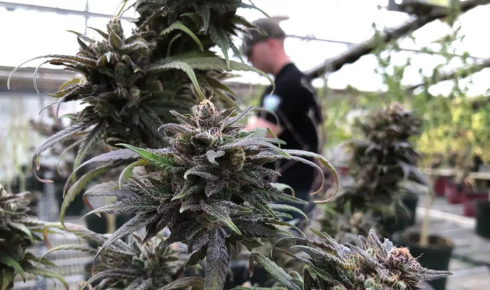In recent years, the cannabis industry has witnessed a surge in interest surrounding THCA flower, a product that is rapidly becoming a favorite among consumers seeking non-psychoactive benefits from cannabis. Unlike THC, which is well known for its mind-altering effects, THCA (tetrahydrocannabinolic acid) is a non-intoxicating cannabinoid found in raw and live cannabis plants. This unique compound has sparked curiosity among health-conscious users and researchers alike due to its promising therapeutic properties.
What is THCA Flower?
THCA flower refers to cannabis buds that are rich in THCA, the precursor to THC. When cannabis is harvested and dried without being heated (a process known as decarboxylation), THCA remains in its original form. This flower is typically consumed in ways that avoid heat, such as juicing, using it in smoothies, or incorporating it into tinctures. However, once heated, THCA converts into THC, delivering the psychoactive experience many associate with cannabis.
Benefits of THCA
One of the main reasons for the growing demand for THCA flower is the potential health benefits without the high. Early research and anecdotal evidence suggest that THCA may have:
-
Anti-inflammatory properties – making it beneficial for people with arthritis or autoimmune diseases.
-
Neuroprotective effects – potentially helping with conditions like Parkinson’s and Alzheimer’s.
-
Anti-nausea and anti-emetic qualities – which could be valuable for chemotherapy patients.
-
Appetite-stimulating properties – supporting those with eating disorders or chronic illnesses.
These potential therapeutic benefits have led many users to turn to THCA as a natural, plant-based remedy that doesn’t interfere with mental clarity or daily responsibilities.
THCA vs THC: Understanding the Difference
The key distinction between THCA and THC lies in their chemical structure and effects. THCA has an extra carboxyl group that makes it non-psychoactive. Only through decarboxylation, triggered by heat, does THCA lose this group and become THC. This process can occur during smoking, vaping, or cooking.
Because of this, consuming raw THCA flower will not produce the typical “high” associated with THC. This aspect makes it highly attractive to individuals who want the medical benefits of cannabis without altering their mental state.
Legal Status of THCA Flower
The legal landscape for THCA flower is evolving. In many states in the U.S., THCA is considered legal as long as it complies with the federal limit of 0.3% delta-9 THC by dry weight, as per the 2018 Farm Bill. However, legal interpretations vary, especially considering THCA’s potential to convert to THC when heated. It’s essential for consumers to stay informed about local regulations and purchase from reputable sources that provide lab-tested products.
How to Use THCA Flower
There are various ways to enjoy THCA flower, particularly if you’re seeking non-psychoactive effects:
-
Juicing raw cannabis: This is one of the purest forms of THCA consumption, preserving its natural state.
-
Raw edibles: Blending the flower into smoothies or raw dishes can help retain its beneficial compounds.
-
Tinctures and oils: Some manufacturers create cold-processed tinctures that maintain high levels of THCA.
For users who prefer traditional methods like smoking or vaping, it’s important to note that the heat will activate THCA into THC, providing an experience similar to conventional cannabis use.
The Future of THCA Products
As research into cannabinoids continues, THCA flower is poised to play a significant role in the wellness industry. More people are embracing plant-based alternatives to pharmaceuticals, and the demand for non-intoxicating cannabis products is increasing. THCA fits perfectly into this trend, offering a middle ground between medicinal use and lifestyle wellness.
In conclusion, THCA flower represents a natural, versatile, and health-focused option in the growing cannabis market. Whether used for its potential healing properties or simply as part of a holistic lifestyle, THCA is carving out its space in the spotlight—proving that cannabis has more to offer than just THC.

